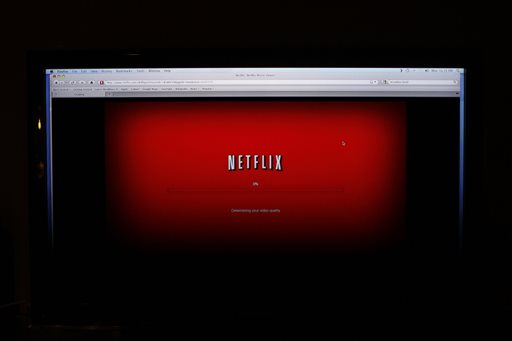1. Andy Serkis to Direct ‘Jungle Book’ for Warner Bros
You gotta give it to this guy. Andy Serkis makes his name as a performance-capture actor and works his way up to directing an A-picture for Disney.
While playing Gollum in the “Lord of the Rings” trilogy, Serkis fought to do the voice; fought for the overall profession of performance capture, and then fought for Academy recognition of motion capture actors. He has also done 2nd unit directing for Peter Jackson.
Now he’s an A-List director.
Good for him.
2. Christian Bale Is David Fincher’s Choice to Play Steve Jobs in Sony Movie
How many Steve Jobs movies is Hollywood going to make? Hollywood has yet to make a Martin Luther King biopic but here we go again… Aaron Sorkin wrote the script. This, though, actually does sound interesting:
The film consists of three long scenes regarding Apple’s buzzed-about product launches, including the Mac, NeXT (after Jobs had left Apple) and the iPod.
The last Jobs film starring Ashton Kutcher grossed only $35 million.
3. THR ‘Noah’ Review: ‘Numerous … heavy-handed ecological doomsday messages’
From the sounds of the review, director Darren Aronofsky has rewritten the Bible. God is not wiping out the Earth due to the moral failings of His people, it is because they don’t recycle.
Variety pretty much says the same:
Where Noah is the model locavore, who takes from the land only as much as he needs and strives to be at one with his surroundings (but who, being Russell Crowe, can also kick serious butt when need be), Tubal-cain personifies the debauched, resource-plundering wastrels God seeks to smite from the universe.
We’ll find out March 28.
4. Netflix CEO: Are the New Distribution Bottlenecks Internet Providers?
In a new blog post, Netflix CEO Reed Hastings doesn’t’ seem as okay with the premium his company just paid to Comcast as was first reported. If you recall, some Comcast customers, who are paying for the kind of Internet service that should allow them to enjoy trouble-free streaming of Netflix, were having problems because Comcast wasn’t delivering the bandwidth. To solve the problem, Netflix paid Comcast an undisclosed “toll.” In a lengthy and thoughtful post, Hastings appropriately frames the debate as a Net Neutrality issue:
Netflix believes strong net neutrality is critical, but in the near term we will in cases pay the toll to the powerful ISPs to protect our consumer experience. When we do so, we don’t pay for priority access against competitors, just for interconnection. A few weeks ago, we agreed to pay Comcast and our members are now getting a good experience again. Comcast has been an industry leader in supporting weak net neutrality, and we hope they’ll support strong net neutrality as well.
ISPs sometimes point to data showing that Netflix members account for about 30% of peak residential Internet traffic, so the ISPs want us to share in their costs. But they don’t also offer for Netflix or similar services to share in the ISPs revenue, so cost-sharing makes no sense. When an ISP sells a consumer a 10 or 50 megabits-per-second Internet package, the consumer should get that rate, no matter where the data is coming from.
Some ISPs say that Netflix is unilaterally “dumping as much volume” (Verizon CFO) as it wants onto their networks. Netflix isn’t “dumping” data; it’s satisfying requests made by ISP customers who pay a lot of money for high speed Internet. Netflix doesn’t send data unless members request a movie or TV show.
The glory of the Internet, which Hastings correctly describes “as improving lives everywhere – democratizing access to ideas, services and goods[,]” could be just another version of modern-day Hollywood and cable TV if the few companies who provide Internet are allowed to bottleneck distribution.
Netflix, and Netflix customers who paid for all that bandwidth, were singled out by Comcast for a form of blackmail. Comcast is also a bundled cable provider — a business facing extinction from streaming providers like Netflix.
5. Is the Sex Scene Dead?
In Esquire, Stephen Marche argues that the sex scene is dead. Oh, there is still plenty of sex on our television and movie screens, but it is either oppressive, grim, or boring. “The era of the titillating mainstream sex scene has abruptly ended,” he writes.
The article actually made me feel better. I thought it was me. I thought I was getting old.
Quick Hits
Johnny Cash’s Great-Niece Found Stabbed to Death
Pitt might replace McConaughey in True Detective
Ouch: A&E Pulls Mark Wahlberg’s ‘Breaking Boston’ After One Episode
‘Wolverine 3′, ‘Fantastic Four 2′, ‘Taken 3′ and More Get Release Dates
Will Marvel Studios Expand To Releasing 3-4 Movies Per Year?
Send tips, requests to jnolte@breitbart.com
Follow John Nolte on Twitter @NolteNC

COMMENTS
Please let us know if you're having issues with commenting.